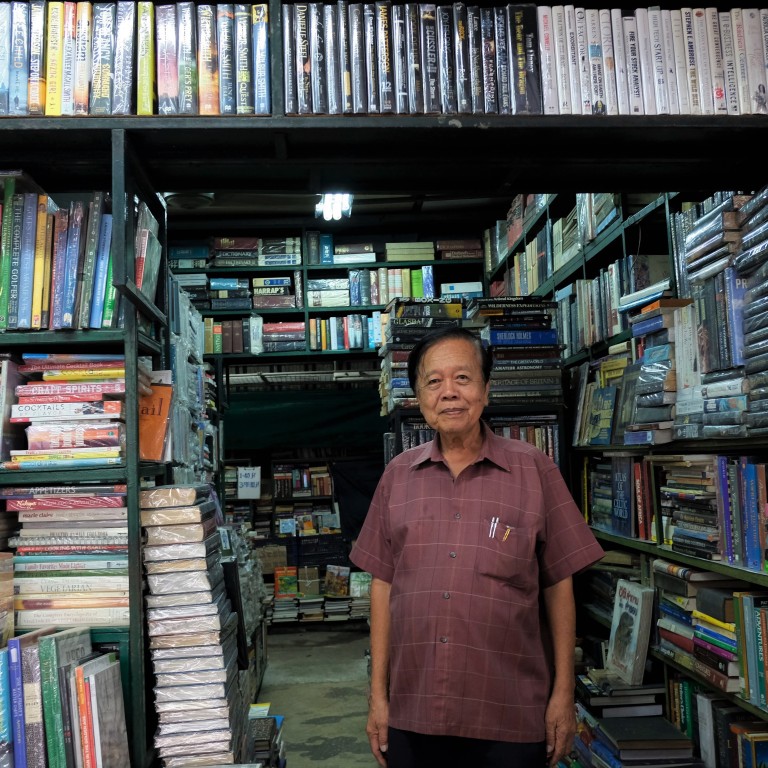
Inside Bangkok’s bustling used book stores, where English and Chinese readers search for hidden gems
- Bangkok has a thriving second-hand book market popular with English and Chinese readers who can find titles of all kinds, including out-of-print books
- According to the city’s ‘godfather of the second-hand book industry’, Chinese customers often buy books to translate into Chinese for the local market
Buddhist monk Ratha Vayagool, 51, is a frequent visitor to Dasa Book Café. One of Bangkok’s most popular second-hand bookshops, it is situated in the middle of the city’s main residential neighbourhood for well-off Thais and the expatriate community.
“I come and browse,” Ratha says. “Sometimes I go to the third floor and I will stay for six hours. You never know what you will find. That’s what I like about it.”
Ratha is an atypical Thai monk. His father was in the diplomatic service, so from the age of two to 24 he lived abroad, attending international schools where he became fluent in English and French. After returning to Thailand in 1992, he worked at a bank. After failing the foreign service exam four times because of his imperfect Thai language skills, he became a monk at the age of 30.
He studied meditation for several years and ended up teaching Buddhist practice at a temple in Chiang Mai, northern Thailand, using English to instruct mostly foreigners. Ten years ago he settled at a temple in Ayutthaya, the old capital 90 kilometres (56 miles) north of Bangkok.
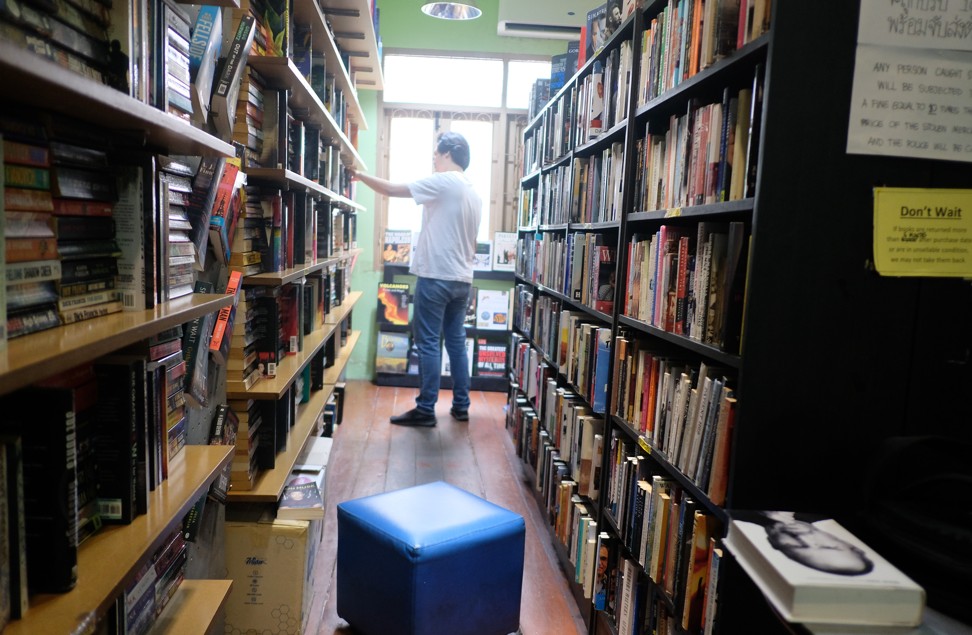
Styling himself as an “independent spiritual adviser” Ratha now takes on individuals (mostly Thais) seeking private consultations on religious or personal matters. Keeping himself well-informed, partly through his extensive and eclectic reading, is one way he keeps his wits keen and is one of the reasons he frequents Dasa and other bookshops.
“When people are coming to you for advice they will ask a lot of questions,” Ratha says. “At some point you need to find different ways of teaching. I am always learning; I have to update myself constantly. The mind needs to be flexible to see the inner shadows of the psyche.”
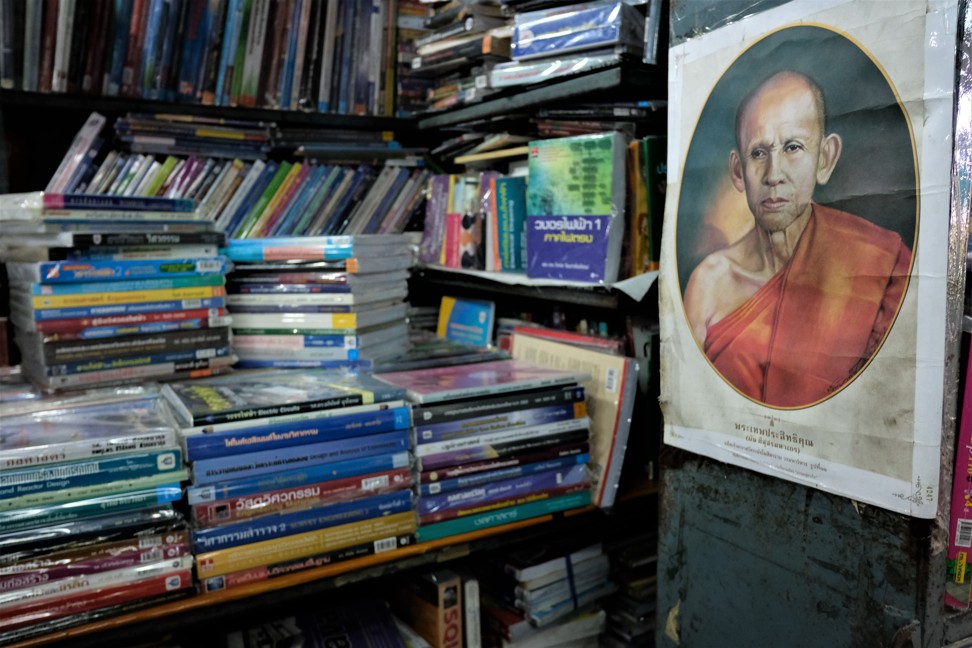
Ratha is a keen collector of books on Buddhism, comparative religion, yoga and even New Age. “New Age is really what the Buddha taught 2,500 years ago,” he says.
He is also a unique visitor to Dasa for another reason. Most of the customers are foreigners. Thailand’s expatriate community is large, although the exact number is a mystery. CBRE (Thailand), a branch of an international property consultant, estimates there are about 150,000 expatriates living in the country legally, either with work permits, retiree visas or spousal visas.
Other sources say the number might be closer to 500,000 if all the semi-legal residents such as those on tourist visas are included.
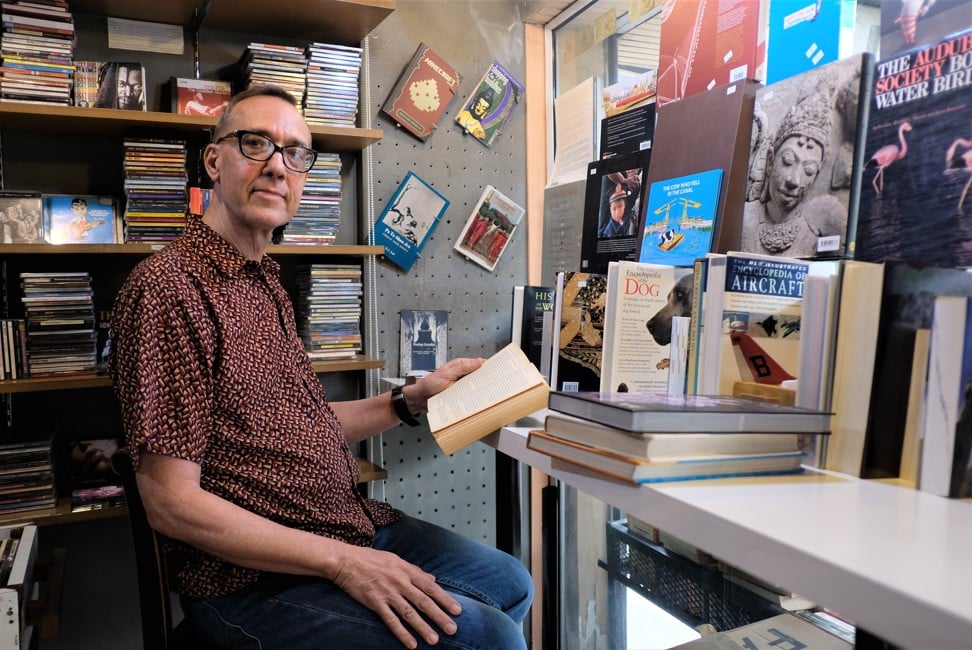
“Here you have the retirees and people who have time to read, as well as some Thais who have picked up on the English language and read a lot,” says Don Gilliland, who co-founded Dasa Book Café with his Thai business partner in 2004. “And then there are the tourists, who factor in too but are more peripheral.”
Gilliland arrived in Bangkok in 1996, working for Tower Records – an international retail music franchise – which was then opening shops in the Thai capital. When Tower threw in the towel on its Bangkok operations, Gilliland moved to Siem Reap, Cambodia, where he opened a second-hand bookshop in 2001.
Thailand trips off the beaten track, far from the Instagram crowd
He returned to Bangkok in 2004 because he missed Thailand, and set up Dasa near Sukhumvit Road Soi 26.
Unlike other second-hand bookshops in Bangkok, Dasa has a well-categorised book display and keeps its inventory on computer so that it can be accessed online – tricks of the trade Gilliland picked up at Tower Records.
“What I like about Dasa is the way [the books] are organised,” says Barbara Parr, a US expatriate working for a law firm in Bangkok. “And their selection is so broad.”
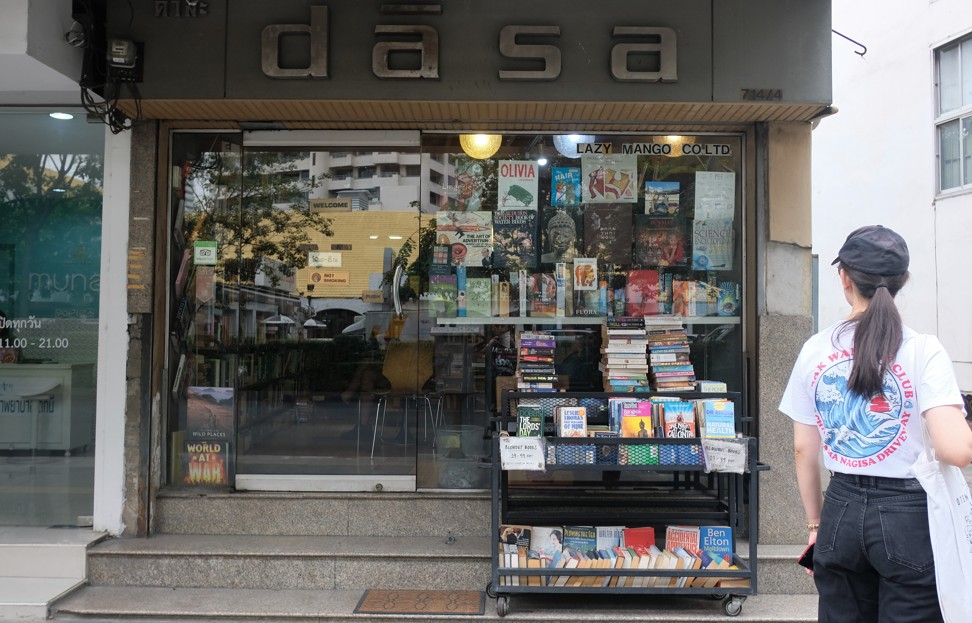
Part of Dasa’s appeal, other than prices being half those for new books, is its policy of accepting returned books or others that people want to offload for a fair price.
The policy means Dasa is constantly taking on new consignments, from individual customers but also from Thai suppliers who buy books in bulk from the families of deceased expatriates or those who have relocated elsewhere, leaving their libraries behind.
“We’ve got a farang [Western] guy who goes to hotels and guest houses, collects books and comes here to sell them,” Gilliland says. “He comes here every day. That’s all he does now.”
The new generation of Chinese can read English. They buy all kinds of books here – fiction, non-fiction, art, design, engineering, technical and history
The supply system can provide some literary gems that one would be unlikely to find at new bookshops such as Kinokuniya or Asia Books, two of the big chains popular in Bangkok.
“There are people who come here to sell us books and you think, ‘How did this book end up in Bangkok, Thailand?’” Gilliland says.
“Just last week I picked up a book at Dasa written by Martin Booth about growing up in Hong Kong in the 1950s [Gwailo: Memories of a Hong Kong Childhood],” says Parr, a former Hong Kong resident. “You never know what you are going to find.”
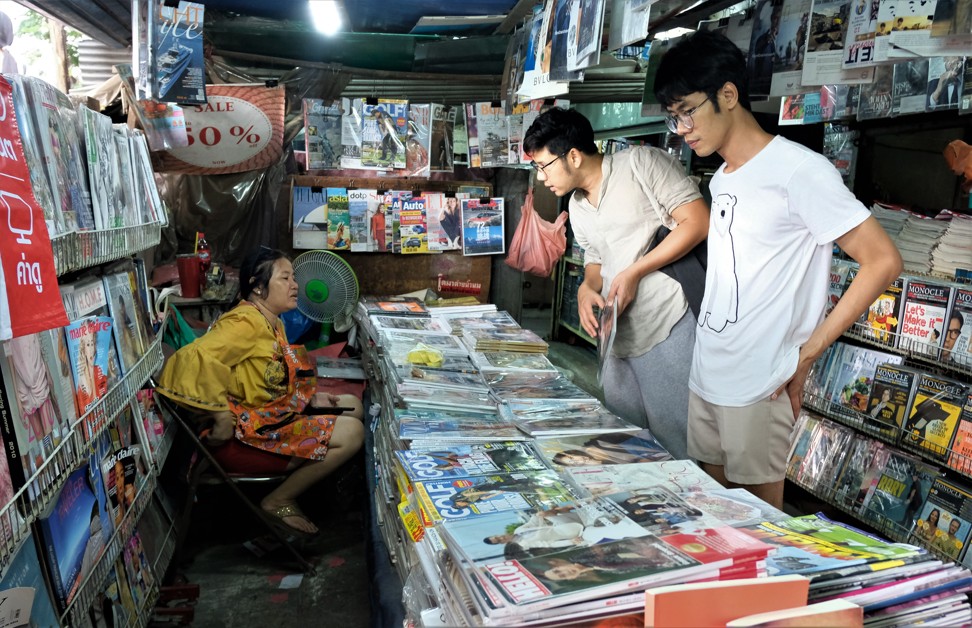
Although Dasa now has a constant inflow of books, when the shop started out in 2004 it had to rely on the “godfather of the second-hand book industry”, Dilok Suengsoonthorn, owner of Dilok Book at Chatuchak Weekend Market (although Dilok Book is open seven days a week).
Dilok, 76, started his career at Central Department Store – Thailand’s first modern department store chain – working in its book section. He then opened a second-hand book stall at the weekend market at Sanam Luang (Royal Field) in old Bangkok, before it was shut down and shifted to Chatuchak.
He has been running his stall at Chatuchak, a popular weekend destination for tourists, for the past 30 years, and boasts a collection of more than 300,000 titles on display and in stock.
“Here the customers are mostly from overseas, with a lot coming from China,” Dilok says. “The Chinese are my biggest market now.”
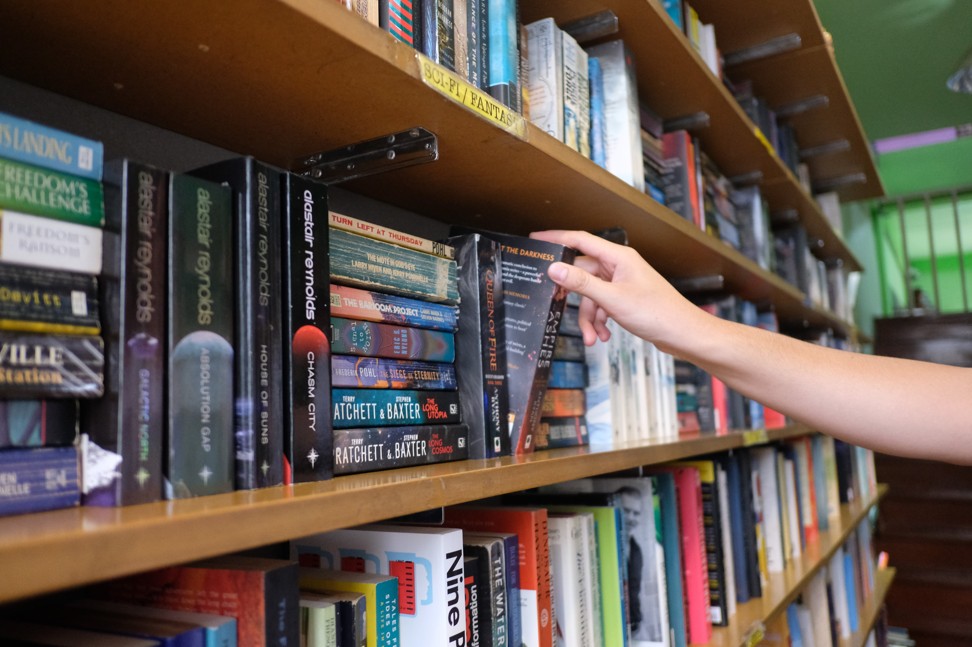
“The new generation of Chinese can read English. They buy all kinds of books here – fiction, non-fiction, art, design, engineering, technical and history,” he says.
There is also a business angle to the bibliophilism. Many of the old, out-of-print books bought at Dilok Book by Chinese customers are taken home and translated into Chinese for the local market, presumably after a copyright arrangement with the original publisher, Dilok says.
Dilok Book, with its huge stockpile, is the main wholesaler of second-hand books in Thailand, selling to shops in tourist destinations such as Chiang Mai, Phuket, Koh Samui, Phang-nga and Krabi, and further afield in the neighbouring countries of Cambodia and Laos, according to Dilok.
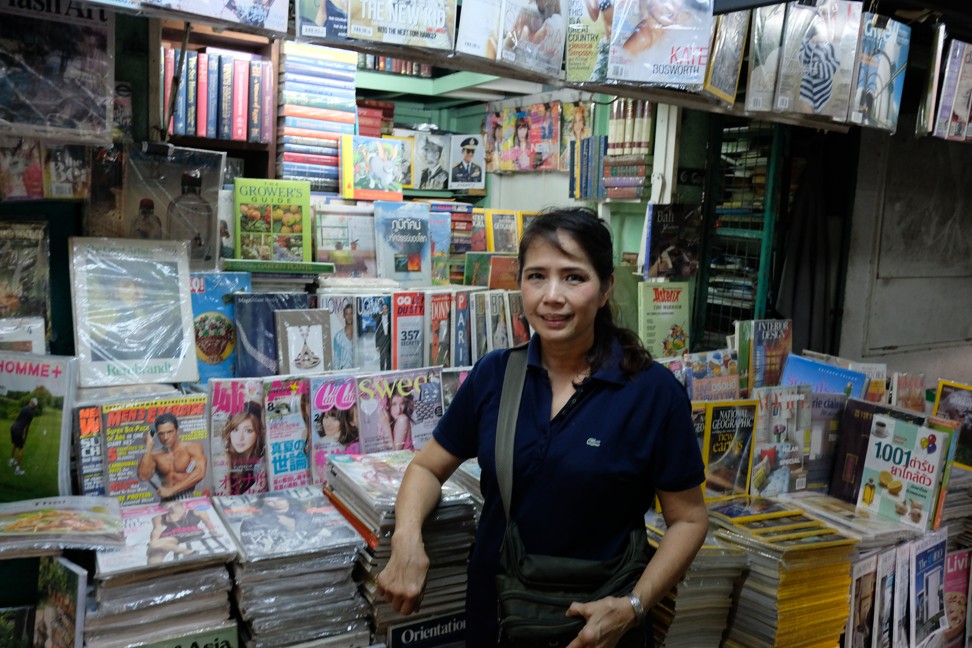
“I have been in this business for 50 years, so people in the business know me,” he says. “When Dasa opened they would buy stock from me. Ten years ago they bought many thousands of books from me.”
Nowadays Dasa has its own steady supply of new and old books. While the option of returning them is one of the shop’s attractions, some customers are one-way collectors, expanding their libraries for their personal pleasure.
“There was a German guy who came in last week, who lives in Ubon Ratchathani [in northeastern Thailand]. He’ll come here every two to three months and buy books, bringing a suitcase with him. That’s his intellectual stimulation,” Gilliland says.
“For a lot of expats, especially for those not living in Bangkok, it adds to the quality of their lives to be able to come here.”
